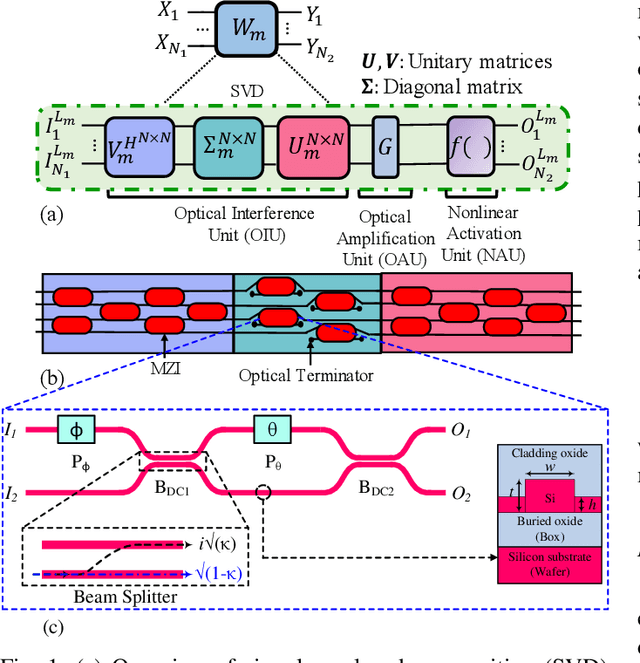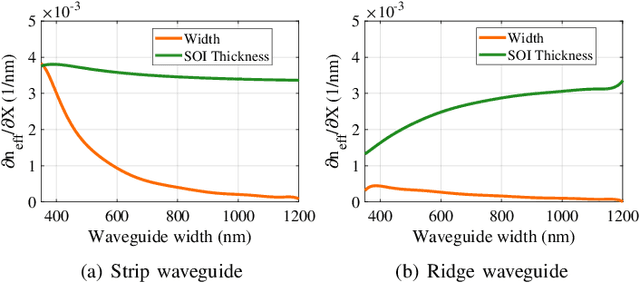Characterization and Optimization of Integrated Silicon-Photonic Neural Networks under Fabrication-Process Variations
Paper and Code
Apr 19, 2022



Silicon-photonic neural networks (SPNNs) have emerged as promising successors to electronic artificial intelligence (AI) accelerators by offering orders of magnitude lower latency and higher energy efficiency. Nevertheless, the underlying silicon photonic devices in SPNNs are sensitive to inevitable fabrication-process variations (FPVs) stemming from optical lithography imperfections. Consequently, the inferencing accuracy in an SPNN can be highly impacted by FPVs -- e.g., can drop to below 10% -- the impact of which is yet to be fully studied. In this paper, we, for the first time, model and explore the impact of FPVs in the waveguide width and silicon-on-insulator (SOI) thickness in coherent SPNNs that use Mach-Zehnder Interferometers (MZIs). Leveraging such models, we propose a novel variation-aware, design-time optimization solution to improve MZI tolerance to different FPVs in SPNNs. Simulation results for two example SPNNs of different scales under realistic and correlated FPVs indicate that the optimized MZIs can improve the inferencing accuracy by up to 93.95% for the MNIST handwritten digit dataset -- considered as an example in this paper -- which corresponds to a <0.5% accuracy loss compared to the variation-free case. The proposed one-time optimization method imposes low area overhead, and hence is applicable even to resource-constrained designs
 Add to Chrome
Add to Chrome Add to Firefox
Add to Firefox Add to Edge
Add to Edge